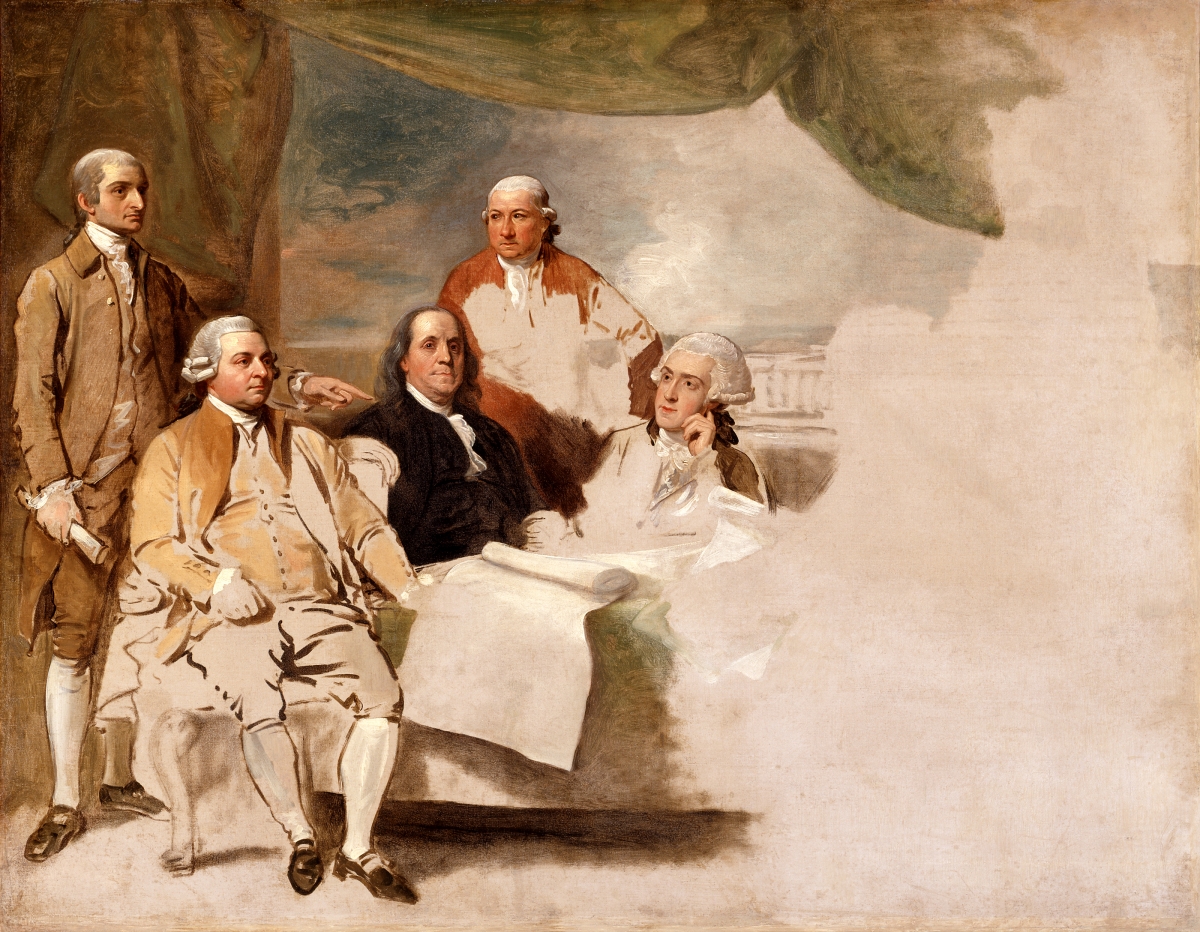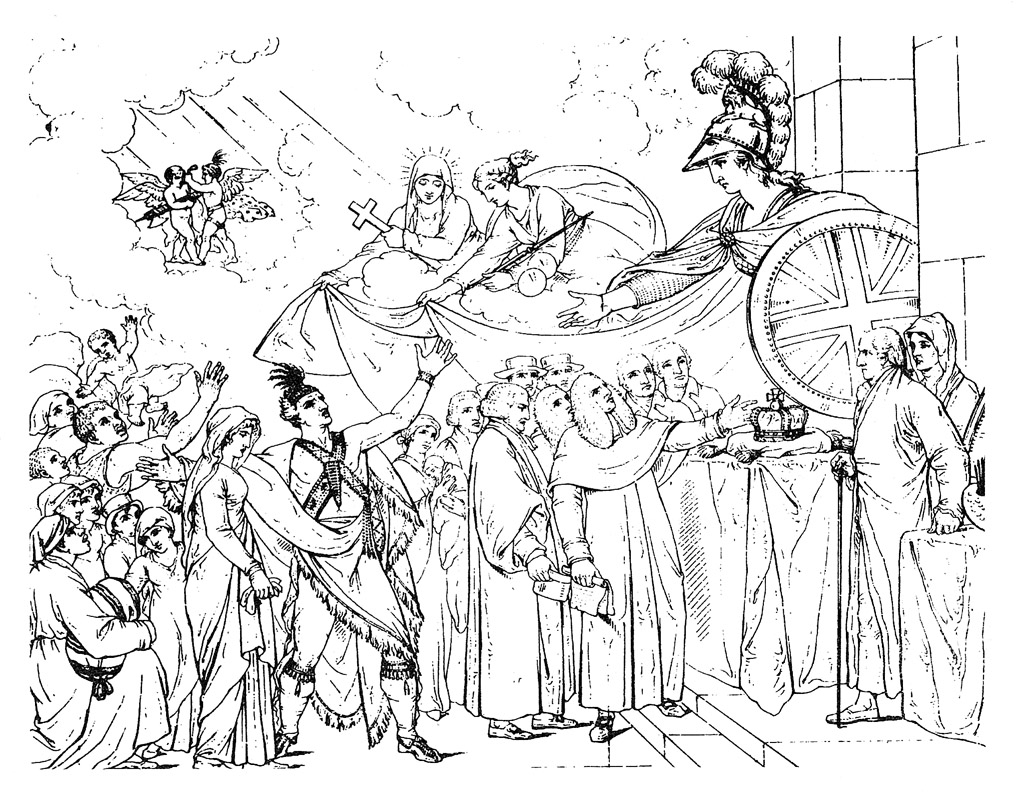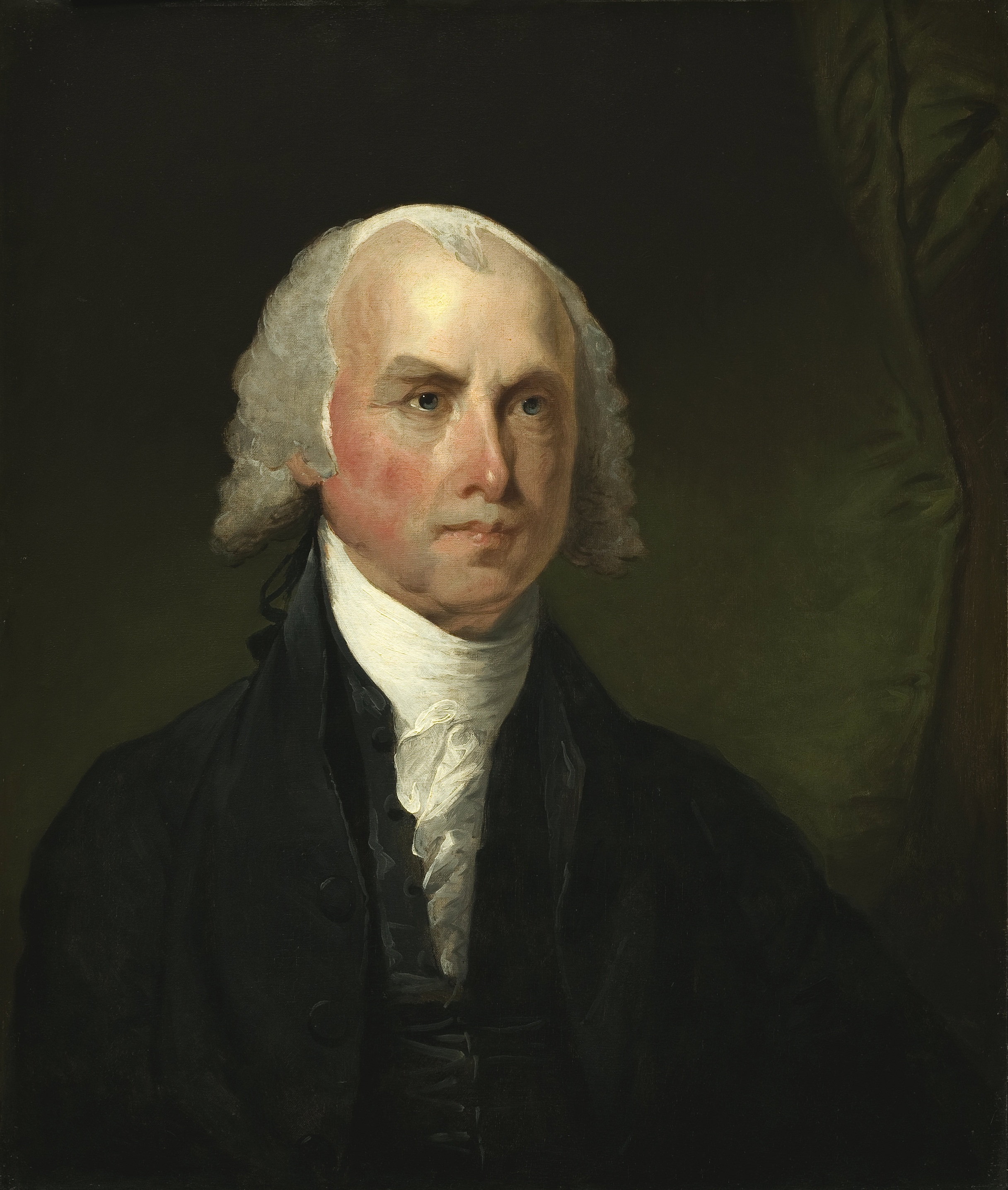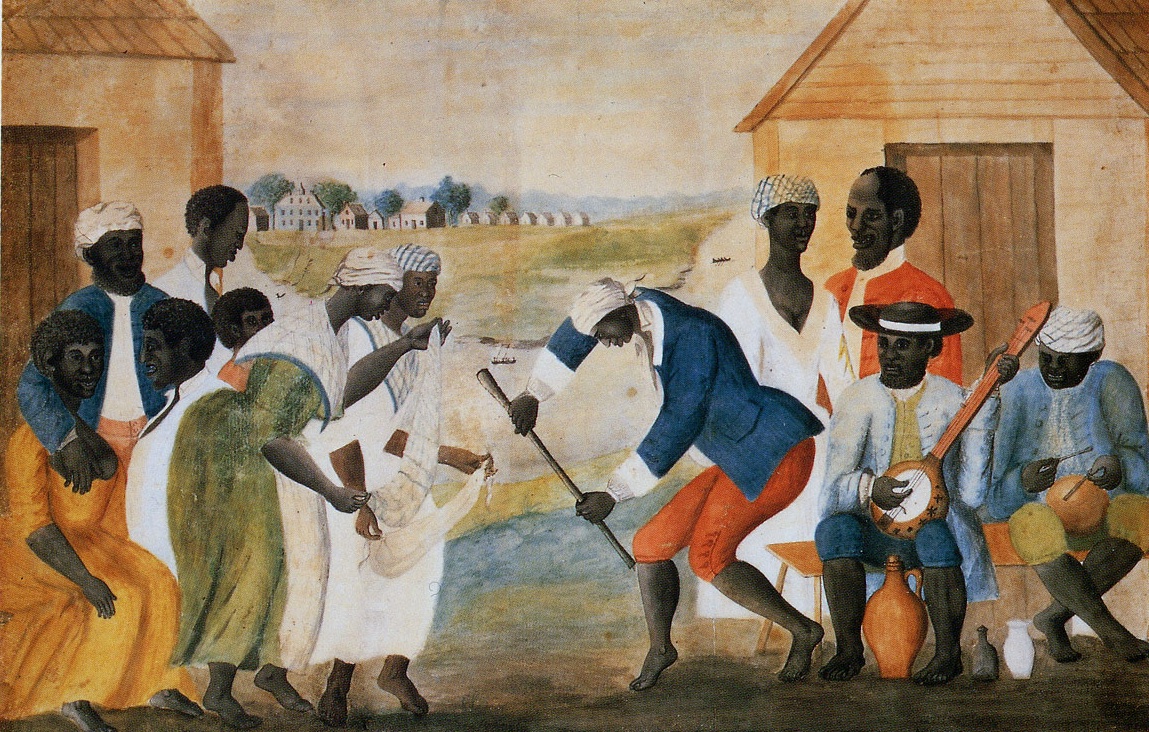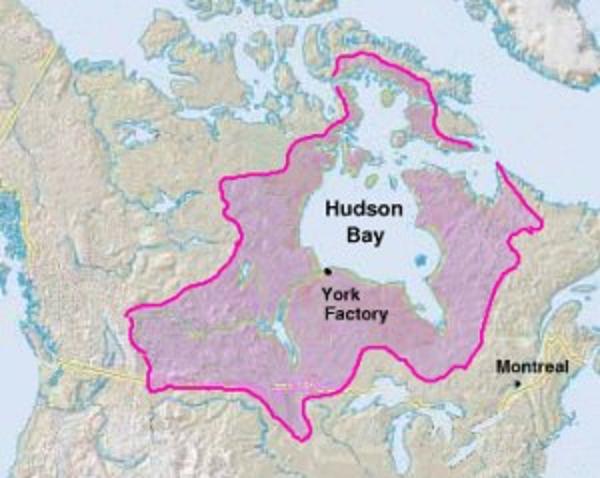While a less than smooth process, the
Peace of Paris saw separate treaties for the combatants in the war against Britain.
The Treaty with the new United States of America included:
1. Acknowledging the Twelve Colonies to be free, sovereign and independent States, and that the British Crown and all heirs and successors relinquish claims to the Government, propriety, and territorial rights of the same, and every part thereof;
2. Establishing the boundaries between the United States and British North America at latitude 36-30;
3. Granting fishing rights to British fishermen in the Grand Banks, off the coast of Newfoundland and in the Gulf of Saint Lawrence;
4. Granting fur trapping rights to the Hudson Bay Company in Prince Rupert's Land until the time of renewal of their charter, with Americans to have equal access to Prince Rupert's Land from this time forward;
5. Recognizing the lawful contracted debts to be paid to creditors on either side;
6. The Congress of the Confederation will "earnestly recommend" to state legislatures to recognize the rightful owners of all confiscated lands "provide for the restitution of all estates, rights, and properties, which have been confiscated belonging to real British subjects [Loyalists]";
7. United States will prevent future confiscations of the property of Loyalists;
8. Prisoners of war on both sides are to be released and all property left by the British army in the United States unmolested (including slaves);
9. Great Britain and the United States were each to be given perpetual access to the Mississippi River;
10. Territories captured by Americans subsequent to treaty will be returned without compensation;
11. Ratification of the treaty was to occur within six months from the signing by the contracting parties.
Treaty of Paris
The Treaty of France included:
1. Declaration of peace, and forgetfulness of past problems.
2. Confirmation of old treaties between the two nations.
3. Exchange of prisoners and hostages to take place within 6 weeks of ratification; also ships (naval and merchant) captured after hostilities at sea officially cease are to be returned
4. French crown to retain St. Pierre & Miquelon.
5. French crown continues fishing rights between Cape Bonavista and Cape St. John (on the east coast of Newfoundland) and between Cape St. John and Cape Raye (round the west coast of Newfoundland).
6. The French may still fish in the Gulf of St. Lawrence.
7. In the West Indies, British crown returns St. Lucia to France subject to guarantees of the rights of British settlers.
8. French crown returns Grenada, St. Vincent, Dominica, St. Christopher's (St. Kitts), Nevis and Montserrat to Britain, subject to guarantees of the right of French settlers in any of those islands.
9. In Africa, British crown surrenders the Senegal river area to France, and returns to France the island of Gorée.
10. French crown guarantees to British crown possession of the Gambia river area and Fort James.
11. British shall have right to carry on the gum trade from the mouth of the River St. John to Portendic Bay, but may not establish permanent settlements there (boundaries of the various African possessions to be determined by commissioners to be chosen within 3 months of ratification).
12. British and French access to other parts of the African coast to continue as customary.
13. In India, British crown returns to France all settlements on the Orixa coast and in Bengal, as at the beginning of the war— with liberty for the French to make a ditch round Chandernagore (for drainage)— and will as far as possible provide security for French trade in the area.
14. British crown also delivers Pondicherry and Karikal to France, with additions to the former at Valanour and Bahour; to the latter at the Magans.
15. Mahé and the factory at Surat also returned to French control, with security provisions as in Article 13.
16. Britain and France will cease to aid their respective Indian allies against each other within four months (ceasefire orders having already been sent to British and French forces in India).
17. British crown abandons restrictions on French use of the port of Dunkirk in France.
18. The two crowns will make new commercial agreements by the end of 1786.
19. All territories conquered by either side since the war began, and not mentioned above, are to be returned to their pre-war owners.
20. The two nations should be able to enter into their respective possessions of St. Pierre & Miquelon, St. Lucia, Gorée, Grenada, the Grenadines, St. Vincent, Dominica, St. Christopher, Nevis & Montserrat, within three months of ratification of the treaty. For Indian towns etc., within 6 months.
21. to 24. Technical details.
The Treaty with Spain included:
1. Declaration of peace, and forgetfulness of past problems.
2. Confirmation of old treaties between the two nations.
3. Exchange of prisoners and hostages to take place within 6 weeks of ratification; also ships (naval and merchant) captured after hostilities at sea officially cease are to be returned.
4. British crown surrenders Minorca to Spain.
5. In "the Spanish continent" [the majority of America south of the United States] British subjects will be permitted to cut and carry away logwood in the district between the Bellize (or Wallis) river and the Rio Hondo (both of which shall be open to navigators from both nations) up to an isthmus formed by a widening of the Bellize river and a widening of the Rio Nuevo (New River), from where the boundary goes straight across the isthmus to the Rio Nuevo, along the Rio Nuevo to where it comes opposite a river [marked on an accompanying map] which flows into the Rio Hondo; then across to that river, downstream to the Rio Hondo, and finally down the Rio Hondo to the sea. Commissioners will mark out places where the British may establish settlements, and all British subjects within the Spanish continent and offshore islands will move to those settlements within 18 months from ratification (with full assistance from the Spanish authorities). No fortifications may be made within this area, and any now existing must be demolished. The British settlers may also fish for their subsistence off the coast of the designated area, and neighbouring islands (but must not make any other use of the said islands).
6. All territories conquered by either side since the war began, and not mentioned above, are to be returned to their pre-war owners.
7. The two crowns will make new commercial agreements by the end of 1786.
8. to 10. Technical details.
The Treaty with the Dutch Republic included:
1. Declaration of peace, and forgetfulness of past problems
2. Respect for each other's flags at sea to be resumed
3. Exchange of prisoners and hostages to take place as soon as possible, without waiting for ratification; also ships (naval and merchant) captured after hostilities at sea officially cease are to be returned
4. In India, the States General of the Republic surrender the town of Negapatnam to the British crown, but may exchange it for some equivalent property if they have such available
5. British crown returns Trinquemale (Trincomalee) to the States General, with all other Dutch towns, forts, harbours and settlements conquered by the British forces (including East India Company forces) during the war
6. The States General promise not to obstruct the navigation of British subjects in the Eastern Seas
7. Commissioners shall be appointed to discuss navigation rights on the African coast, and the subject of Cape Apollonia [in what is now Ghana], which have been the source of disputes between the English African Company and the Dutch West India Company
8. All territories conquered by either side since the war began, and not mentioned above, are to be returned to their pre-war owners
9. to 11. Technical details
